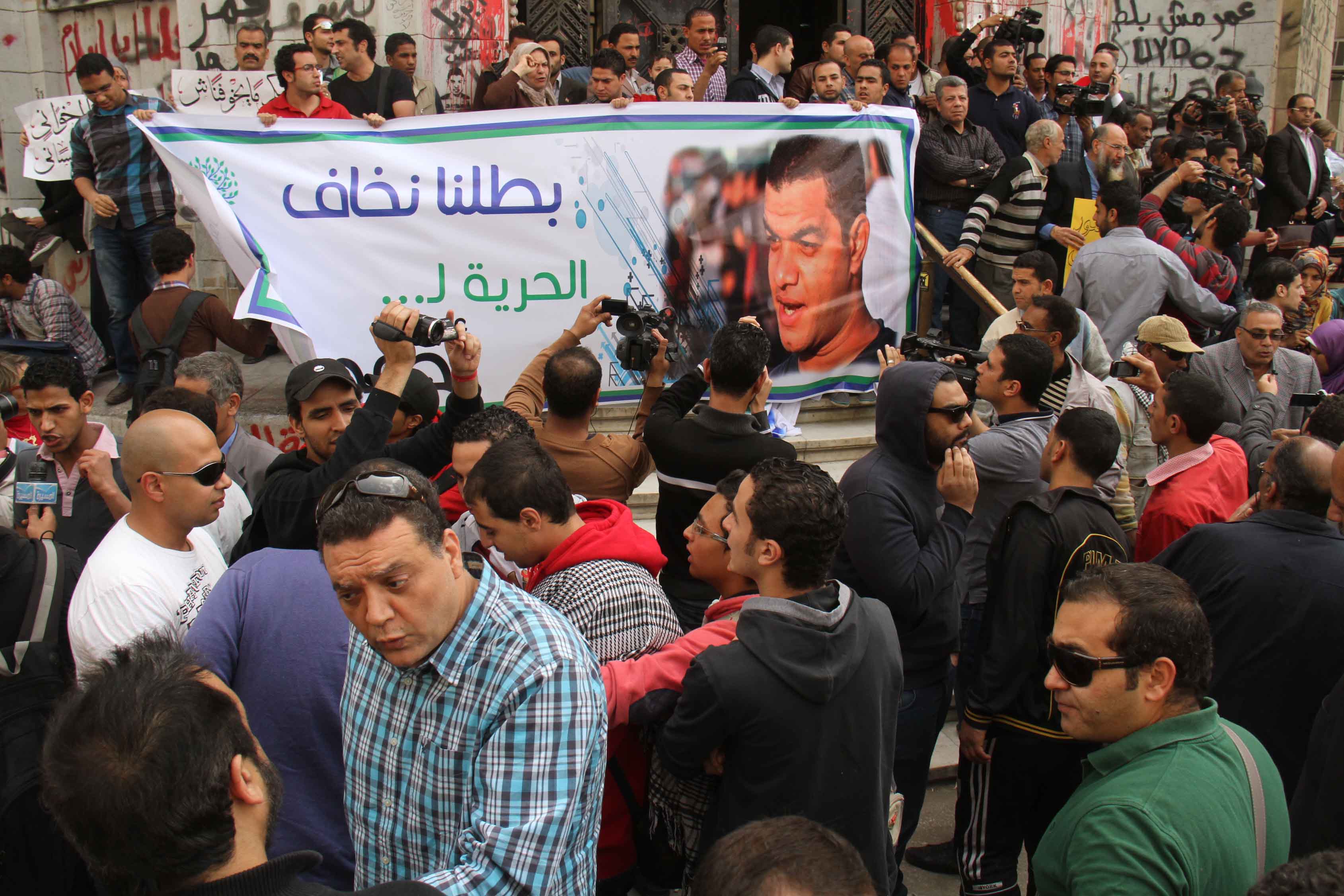Prosecutor General Nabil Sadek issued a decision to monitor media outlets and social media platforms and prosecute them if found guilty of broadcasting lies and false news, according to an official statement released by the General Prosecution on Wednesday.
Sadek assigned prosecution officials of different circuits to follow media outlets to check what is deliberately reported from statements or false rumours that aim to disturb public security or harm citizens’ and the country’s interests.
The statement urged the authorities responsible for monitoring media to notify the prosecution about any stance that are counter media and publishing conventions.
In April, President Abdel Fattah Al-Sisi issued the formation of three entities—the Supreme Council for Media Organisations, National Press Authority, and National Media Authority—to follow the media and press situation in Egypt.
In a similar context, Egypt’s National Media Authority said on Tuesday that it will suspend cooperation with the British Broadcasting Corporation (BBC) for publishing a report that included “lies and allegations” about the country’s human rights conditions. The suspension will include cooperations and agreements until further notice.
This came as a result of a report published on Friday about alleged cases of forced disappearances and torture carried out by Egyptian security forces.
The controversial report included a story of the forced disappearance of a female named Zobiada Ibrahim. The young female, who was interviewed by a prominent Egyptian TV host on Monday evening, denied claims that she had been kidnapped and tortured by security forces, which led the State Information Service (SIS) to call on Egyptian officials to boycott the BBC for its failure to apologise.
The SIS previously refuted the report, saying that it included “lies and allegations,” and that the report reflects the correspondent’s “biased personal views and impressions, without any factual basis, in violation of internationally recognised professional norms and those of the BBC itself.”
Diaa Rashwan, head of the SIS, previously summoned the BBC’s Cairo bureau chief to discuss the issue, and it was reported that both would meet next Monday.
This case is not the first of its kind, as Egypt has been long calling on foreign media to ensure accuracy and credibility in their reports about the country’s political and human rights conditions, as several reports were recently published by these outlets criticising conditions in Egypt.



